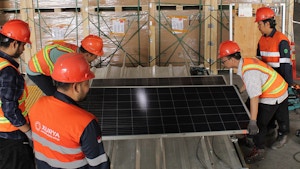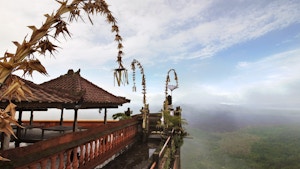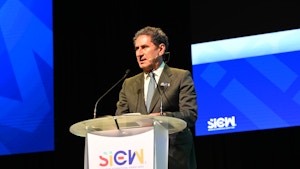Peralihan Tenaga Bersih Asia Tenggara
Segala berita terkini. Back to Sea's Clean Energy Transition.

As Indonesia heads for the polls, Eco-Business assesses which of the three major presidential candidates has the strongest position on climate and environmental justice.

SDG 11. Cities
Clean energy policies in SE Asia improving but chronic issues impact payouts: SEACEF green fund manager
Clime Capital will raise its financing cap after winning blended finance backing for its regional early-stage funding scheme. But it has to “risk-gate” disbursements to keep clear of regulatory deadlocks.

Leaders Vietnam and The Philippines are facing delays in developing renewable energy projects, while unambitious Asean targets allow countries to continue developing coal and gas, says Global Energy Monitor.

As the island recovers from a pandemic-induced slump, it is trying to diversify its economy beyond tourism and attract green business. But can eco-startups scale or is Bali more beach than business?

Several commitments have been made in 2023 to boost clean energy in the region, and observers are now looking for signs of real action. Meanwhile, solar manufacturers could be in for a bumpy ride.

SDG 12. Consumption
Petronas, Pertamina among national oil companies at highest risk of not generating public returns in net-zero world
A new analysis lists the Malaysian and Indonesian oil firms as two of the world’s four state-owned oil companies which will face the highest costs for continued oil expansion. Falling demand of the dirty fuel could impact their national economies.

Meet the people pushing to protect one of the most vulnerable parts of the world to global warming at the COP28 climate talks in Dubai.

SDG 13. Climate
Johor yang berkembang pesat mengintai peluang perdagangan tenaga, kenderaan elektrik dengan Singapura dalam usaha pemacuan ekonomi hijau
Negeri paling selatan Malaysia sedang meneroka eksport tenaga bersih dan meningkatkan pembangunan infrastruktur EV melalui cadangan zon ekonomi khas dengan Singapura. Pelan ekonomi hijau Johor juga akan berusaha untuk memperkukuhkan lagi pertahanan banjir.

SDG 13. Climate
High renewables development costs are a ‘symptom’ of inflexible power grids: IRENA chief
Having more energy storage facilities can help shake Southeast Asia's reliance on fossil fuels, said the head of the intergovernmental body championing the use of renewables in a sit-down with Eco-Business.

SDG 13. Climate
Singapore’s central bank proposes engagement, over divestment, for decarbonising finance firms
While experts have lauded the regulator’s transition planning guidelines as one of the most comprehensive for the sector thus far, some said it remains unclear when divestment could be a valid and sound step to take.

The city-state has given initial clearance for firms to bring in over 4 GW of low-carbon electricity from its neighbours. Regulators are studying if Singapore can take in more power imports, with several consortiums indicating interest.

SDG 9. Infrastructure
Support for fossil fuel subsidy cuts and coal phase-out gains momentum among Southeast Asians: survey
At least half of respondents want these subsidies to stop, reflecting a likely attitude shift as such cuts were seen as the least popular intervention previously. Most are still worried that the renewables push will hike up energy prices.


Menukar Inovasi untuk Kelestarian Sertai Ekosistem →

